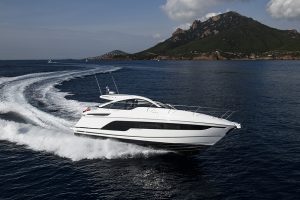RNLI lifeguards trial Surfers’ Survival Clinics in Cornwall
New scheme to prepare surfers for the Autumn months
RNLI lifeguards are trialling a series of Surfers’ Survival Clinics at various locations in Cornwall this Autumn. With no lifeguard cover in the county from 1 November, the free clinics, run by the charity’s lifeguards, aim to equip surfers and bodyboarders with the information needed to enjoy the water safely over the winter, and knowledge of basic rescue techniques to help fellow surfers should they get into difficulty.
Dave Gorman, RNLI Divisional Beach Safety Manager explains the purpose of the Surfers’ Survival Clinics. He says;
‘It used to be only the very experienced surfers braving the cold water during the winter. However, now surfing is becoming more popular and wetsuit technology is improving all the time, there are more surfers wanting to get wet and enjoy the great waves Cornwall has to offer over the winter.
‘The RNLI lifeguard season will end on all beaches in the south west by 1 November, so we’re aiming to show surfers, who will still be using the water after this time, how to take care of themselves and each other. The clinics are not designed to turn them into lifeguards but will enable the surfer or bodyboarder to develop the knowledge and skills needed to prevent getting into danger in the water. It will also demonstrate basic rescue techniques and first aid.
‘The most important thing the clinics will stress is that they should consider their own safety as a priority.’
The three-hour clinics cover a mixture of beach and water-based activities, including: · The causes and types of waves
How to identify and deal with rip currents
The effects of tides · How and why to warm up
Effective paddling techniques
Surf etiquette
Flags and signage
Participants will then focus on rescue techniques, with a practical session on basic rescue skills, should they need to help a fellow surfer or bodyboarder while in the water.
The clinics have been developed from those originally run by Paul Benney, RNLI Area Lifeguard Manager for Restormel for local surfers in Newquay a few years ago, he says;
‘As a local, I was aware of a number of surfers being put in situations where they were rescuing each other outside of the lifeguard hours or during the winter, when there are no lifeguards on duty. A friend of mine was involved in the rescue of a surfer who, despite his best efforts, unfortunately didn’t make it. Understandably, he was extremely upset and felt that if he’d been equipped with some basic skills he might have been able to do more. So I started up the local sessions to provide surfers with some of the fundamentals in how to look after themselves and what to do in an emergency.
‘RNLI has already extended it’s usual lifeguard season into November on five beaches in Cornwall. However, for funding reasons, the charity cannot provide year-round cover, so they are offering these clinics on a trial basis in Cornwall, where the majority of surfing takes place. If they are a success, the clinics may be rolled out further.’
The clinics are open for competent surfers and bodyboarders, who have had numerous lessons or have been surfing for a long period of time. They are free and will be held on a first-come, first-served basis on various dates across the county. Look out for more information on the Surf Survival Clinics as dates are confirmed in the local press and on the RNLI website www.rnli.org.uk.
Dates of two Surf Survival Clinics already confirmed are;
Friday 23 October, Praa Sands in Kerrier. Contact RNLI Lifeguard Supervisors Bruno Martin on 07815442348 or David Green on 07970 961 068 to sign up.
Saturday 24 October, Porthmeor beach in St Ives. Contact the RNLI Area Support Centre in Hayle 01736 753 567 to sign up.










